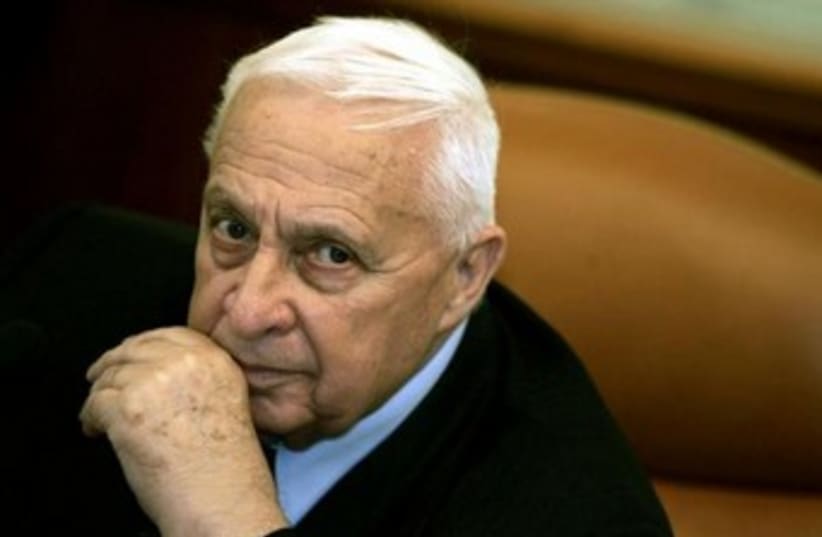BERLIN – When contrasted with Europe’s coverage of Ariel Sharon during his premiership, European news organizations showed, with few exceptions, a more balanced perspective of the life of Israel’s 11th prime minister. Nevertheless, many articles and television broadcasts omitted background information since Sharon’s death on Saturday.Lisa Abramowicz, secretary-general of the Swedish-Israel Information Center, told The Jerusalem Post Monday the “Swedish media here has been a mixed lot.”She said the large news organizations’ editorial line had not crossed into demonization.
However, she cited an article in the tabloid Expressen ,which quotes Per Jönsson, who compares Sharon to Hitler and Stalin. Sharon’s “military methods against Palestinians and Jordanians can almost be likened to those of Hitler and Stalin," Jönsson is quoted as saying in the piece. "Ben-Gurion gave him carte blanche to do whatever he wanted."Per Jönsson works as a Middle East expert at the Swedish Institute of International Affairs.Abramowicz said, "I think Jönsson's statement is the worst I have heard of or read these last couple 'of days. Jönsson's comparisons of Sharon's methods to Hitler's and Stalin's are absolutely ludicrous. To compare even the harsh measures of self-defense during the 50s and 60s to two of the world's worst dictators, genocide perpetrators and warmongers is totally beyond the pale, and shows the double standards Jönsson is using when it comes to judging Israel. I cannot remember him [attaching] such labels to other military men or methods in the Middle East."The German paper Bild – Europe’s largest daily – wrote: “Sharon was one of the most important – but also controversial – political leaders in the history of the State of Israel.”The Bild, which has a sympathetic view of Israel’s security interests, showed a photograph of the paper’s late owner Axel Springer with Sharon during his time as agriculture minister in 1979. After the 1982 war in Lebanon, the name “The Butcher of Beirut” was applied to Sharon but is “demonstrably false,” wrote the Bild.The German TV news program Tagesschau headlined its website article “War criminal or national hero?” The station’s obituary attributed the outbreak of the second intifada to Sharon’s visit to the Temple Mount, despite Palestinian documents and interviews that prove it was planned in advance by PLO leader Yasser Arafat.The center-left French daily Le Monde termed Sharon a “warrior” while the left-wing Libération described him as a “hawk” because of his numerous feats during his “controversial political and military career.”The social-democratic newsweekly Le Nouvel Obs said Sharon was “a brutal man with many faces and cynical, who left behind him a dangerous legacy.”The front pages of most Italian papers were blanketed with Sharon stories.The liberal paper La Stampa wrote, “Goodbye Sharon, from massacres to the dream of peace.”In a column in the center-right paper il Giornale, the Italian-Israeli author and journalist Fiamma Nirenstein wrote, “Goodbye to Sharon: not a hawk, but a dove of steel.”The left-leaning daily La Repubblica wrote: “The last battle of Sharon, the Israeli bulldozer.”During Sharon’s tenure, many European news organizations used anti-Semitic language and cartoons to portray him, according to political scientist Daniel J. Goldhagen. In his 2013 book The Devil That Never Dies, he shows many examples of the anti-Semitic vilification of Sharon. One telling example from Goldhagen’s book is a Spanish paper’s cartoon depicting Sharon as “hook-nosed... wearing a yarmulke and sporting a swastika inside a Star of David,” declaring: “At least Hitler taught me how to invade a country and destroy every living insect.”CorrectionIn the article “Swedish tabloid compares Sharon to Hitler and Stalin” (Jerusalem Post, January 14, Page 2), it should have been clarified that a person interviewed in a news story on the Expressen website compared Sharon to Hitler and Stalin, and not in an opinion article, as stated. We apologize for the error.
